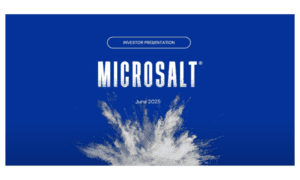A new study reveals how eating less sodium can affect heart failure survival. Here’s how to prepare with a low-sodium diet.
Key Takeaways:
- Heart failure is now a global epidemic affecting millions of people
- A low-sodium diet can reduce heart failure symptoms and improve patients’ quality of life
- However, a low-sodium diet may not reduce hospitalizations
- Low-sodium diets may involve cutting out sodium and replacing it with herbs and spices to enhance flavor
The Heart Failure Society of America (HFSA) estimates that almost 6.5 million Americans older than 20 have heart failure, with one study estimating that 960,000 people develop the issue every year. Heart failure is one of the many potentially fatal results of heart disease.
Heart disease has in turn been directly linked to hypertension (high blood pressure) which can be caused by consuming too much sodium. Recently published research into the cardiovascular effects of sodium yielded some positive results around eating a low-sodium diet on heart failure. Read on to learn more about it and how you can put a low-sodium diet into practice.
How a lower sodium diet can improve heart failure outcomes
The basic theory behind a low-sodium diet being beneficial for heart failure patients lies in fluid levels. The balance of sodium and fluid in the body can be negatively offset when excess sodium is consumed because the body then produces more fluid to help flush the sodium out. That excess fluid then becomes a cardiovascular health risk.
The less sodium a person consumes, the less fluid their bodies will retain in an effort to maintain balance, thus reducing the chances of heart failure. An international study into dietary intervention and lower sodium intake was published in April 2022 in The Lancet.
The study involved 800 participants from six countries. It examined how patients 18 years and older who were being medically treated for chronic heart failure responded to a low-sodium diet of under 1500 mg a day. To put that into perspective, that is less than half the daily average of sodium being consumed by Americans two years and older, which is more than 3400 mg.
Two positive results came to light: Quality of life improved for participants consuming less sodium along, and there was improvement in each patient’s New York Heart Association (NYHA) scale classification, which has four levels. The study did not, however, reveal any benefits of a low-sodium diet in terms of reducing heart-failure-related deaths, emergency room visits, or hospitalizations.
Why more trials are necessary
The study had several key limitations. For example, it was restricted to a one-year follow -up on patients, which led the study’s author to suggest a low-sodium diet may have measurably more positive effects beyond a 12-month period.
Other respected sources, like the Cleveland Clinic, believe that a low-sodium diet is not only recommended but needed to help control the symptoms of heart failure and help avoid other cardiovascular problems. The Clinic also offers practical advice on low sodium ingredients, portion control, and meal-by-meal recipes.
There’s a lot that patients and the wider public can do for their diet to improve cardiovascular health while medical research into the low-sodium diet/heart failure relationship is ongoing. Here are some more suggestions to build on current findings and recommendations.
Your guide to preparing a low-sodium diet
Less sodium in your life doesn’t have to mean a bland and unsatisfying menu. There is a world of colorful, flavorful menu options out there. We’ve assembled this list of suggestions that could help reduce your risk of heart disease and heart failure:
- Try the DASH Diet
Dietary Approaches to Stop Hypertension (DASH, for short) is strongly supported by health experts as an effective method of lowering systolic and diastolic blood pressure. Sodium, red meats, and sugar are reduced in favor of fruits, vegetables, grains, and more foods that combat heart disease and hypertension.
Read our previous blog for the full picture of DASH and consider trying the many herbs and spices that can flavor food more healthily than adding salt, such as ginger, black pepper, and cinnamon.
- Supervise your snacks
It’s too easy to give in to convenience and grab any snack off the shelf when you’re in a hurry. These little nutritional pitstops can add up for good or bad depending on their sodium content. We spotlighted the best low-sodium snacks for 2022 in a previous blog, including chips and nuts, while also listing the top three rules for successfully choosing your next heart-healthy nibble.
- Understand the basic science of sodium
Did you know your body can function optimally with only one-sixth of a teaspoon of salt a day? That’s just half a gram equating to 500 mg of sodium – much better than the 3400 mg consumed daily by the average American.
Sodium has a valuable part to play in our health and food production. Knowing where that place is helps consumers and patients keep heart disease at bay. Learn more about the roles and risks of sodium in food and you’ll make smarter, safer dietary choices.
It’s vitally important to consult a medical professional before taking any steps to alter the amount of sodium in your diet. This is a factor that must be diligently controlled under expert supervision. Previous studies highlighted in 2017 by the American Heart Association (AHA) generated data that links consuming too little sodium to the production of heart-harming hormones and negative nervous system responses.
These excessively low-sodium effects can cause the same health issues that develop or are exacerbated by consuming too much – namely stroke, heart attack, and death. Moderation, medical advice, and making sodium education part of your routine are three ways to ensure you’re doing everything possible for your cardiovascular health.
Let the MicroSalt® newsroom keep you informed
We regularly update our knowledge base to reflect the latest developments in low-sodium matters ranging from global health initiatives and scientific studies to medical news and lifestyle tips. It’s all part of our award-winning mission to help patients, consumers, and manufacturers enjoy a healthier world. Contact us via our message page or call 1 877 825 0655 to learn more about how we’re doing it.




